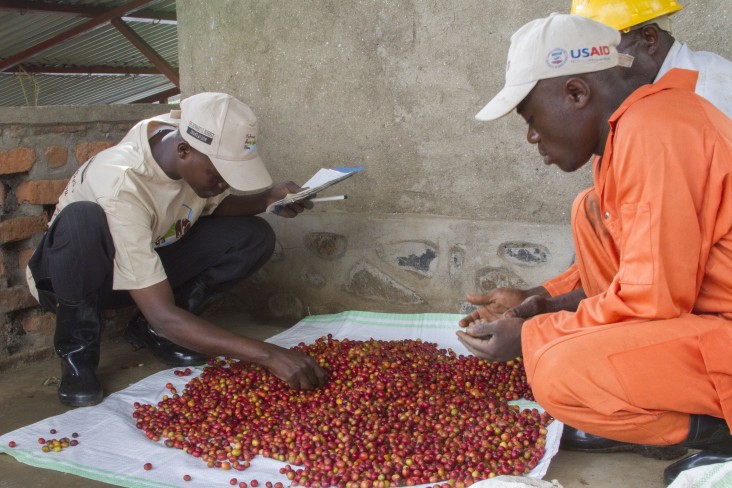
Starbucks debuts specialty coffee grown by USAID-supported farmer cooperatives in eastern Congo
For Immediate Release
KINSHASA – More than 4,500 small-scale coffee farmers supported by the U.S. Agency for International Development (USAID) in the South Kivu province of the Democratic Republic of the Congo (DRC) are attracting international buyers and making sales to American coffee companies including Starbucks, Counter Culture Coffee and Sweet Maria’s. On March 22, Starbucks launches a high-quality South Kivu coffee supplied by these farmers at nearly 1,500 stores across the United States and Canada, and on Starbucks.com.
Starbucks is selling the South Kivu coffee as part of its Starbucks Reserve coffee program, which features the highest-quality coffees from around the world. This is the first time Starbucks has offered a single-origin specialty coffee from the DRC.
The farmers who grew and processed this coffee are part of “Kivu Specialty Coffee: Kahawa Bora Ya Kivu,” a four-year project funded by USAID and the Howard G. Buffett Foundation to revitalize the coffee sector in the DRC. Through this project, coffee farmer cooperatives are improving the production of coffee cherries, from harvesting to market delivery to finding international buyers. Since the project began in 2012, farmers have tripled their incomes with the increase in international sales.
Constantin Kasikagwe Mukuba, a coffee farmer with 141 trees on a quarter-hectare plot in South Kivu, said the improved growing techniques he learned at a project workshop helped him increase his seasonal coffee cherry production from 30 kgs to 250 kgs.
“Thanks to the fields, I can educate my children. I can feed my family,” Mukuba said.
The Kivu Specialty Coffee: Kahawa Bora Ya Kivu project is implemented by Catholic Relief Services, Eastern Congo Initiative and World Coffee Research. It will continue through September 2016. Read more about the rising coffee sector in the DRC at https://usaid.gov/results-data/success-stories/congolese-coffee-rises-again-0.
In the past year, the U.S. government, through USAID, provided more than $350 million in development and humanitarian assistance to the DRC.







Comment
Make a general inquiry or suggest an improvement.